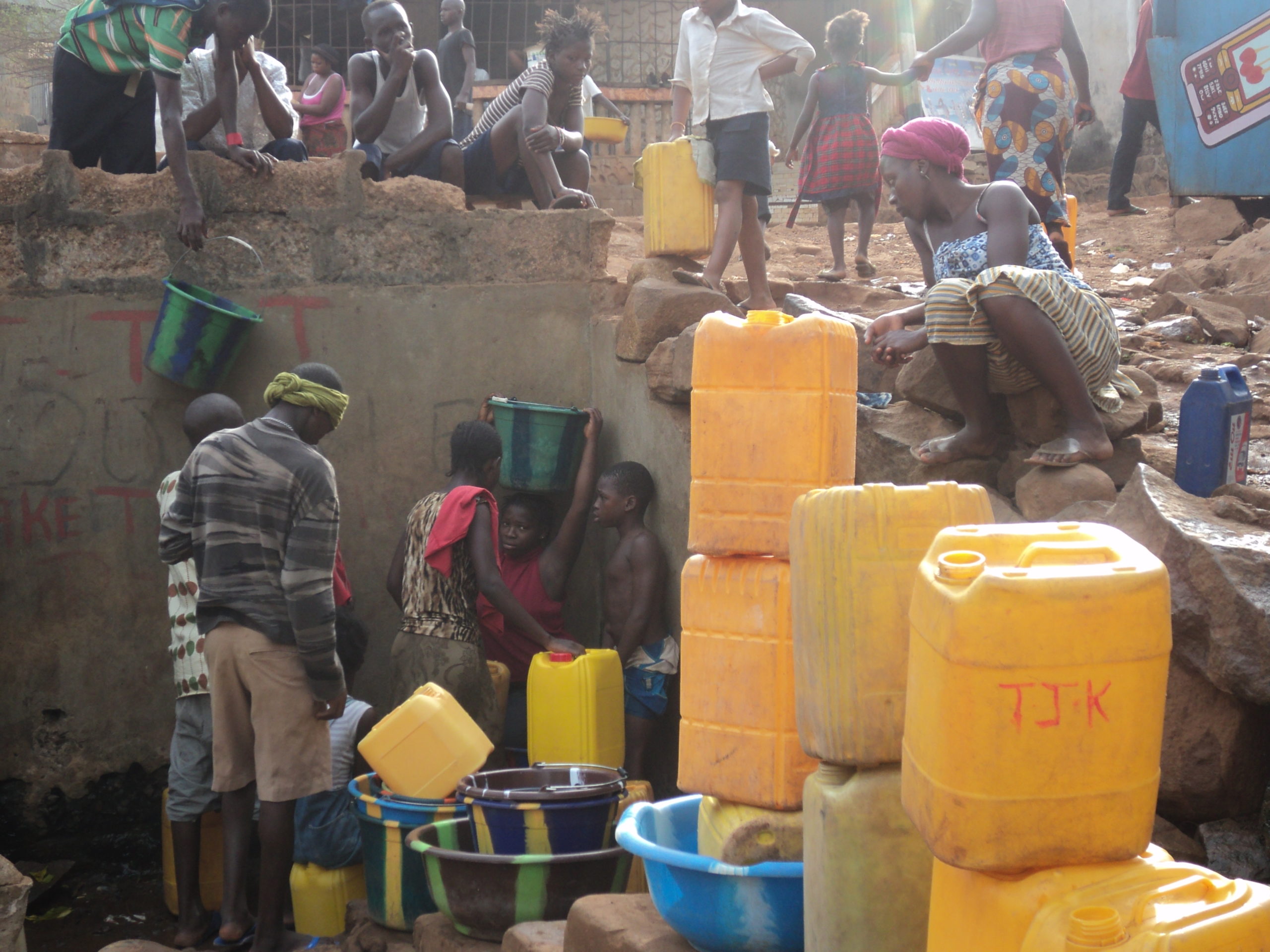By Sahr Ibrahim Komba
FREETOWN, Mar. 10 (232news.com) – The access to pure drinking water is almost always a problem in Freetown the capital city of Sierra Leone. Water is one of the basic needs a country provides to its citizens. This has been a major problem in Freetown especially in the dry season for over two decades. Some experts say it is as a result of the migration of people from the provinces to the capital especially after the civil war. Prior to the civil war, the capital was not facing any problem in accessing pure drinking water.
The demands for land for the construction of houses have exacerbated the situation. Some people have built or even farmed in water catchment areas in Freetown. The Botanic garden in Fourah Bay College is an example. Almost the entire Botanic garden has been cleared for farming or for wells. People living in the surrounding community have encroached on Fourah Bay College land and even constructed wells. Farming and water selling are now the socioeconomic activities of the people living in the surrounding communities. The dam in Botanical Garden cannot supply enough water to the college because of the deforestation.
Report on Stakeholder Assessment Of the Western Water Catchment Areas provides the following findings: *Increase in deforestation around the catchment as a result of urbanization, logging fuel wood and coal burning, small scale agricultural activities like vegetable gardening are prevalent around the catchment areas, stones mining activities are among the major occupations of the locals around the catchment areas which have led to the diversion of some of the waterways etc. The report also put forward important recommendations which are yet to be put into force by Government and Environmental Protection Agency (EPA)
The struggle for water during the dry season in Freetown has led to the loss of lives and properties. Some people especially women spend the entire night fetching water and are sometimes sexually or physically attacked by thieves or thugs. There are situations where some girls or women exchange sex for a bucket of water. Thugs (predators) control some wells or street pump during the dry season and people even considered them demigods. No one violates or disobeys their rules. Whosoever challenges their rules he or she is in trouble.
It is also good to know that sometimes people destroy Guma pipes leading houses and other communities. The destruction of those pipes lead to the deprivation of the entire community from accessing pure drinking water.
The government through the Ministry of Water Resources should make laws that will prevent people from destroying Guma pipes. This will help minimize the damages people cause to Guma properties.

